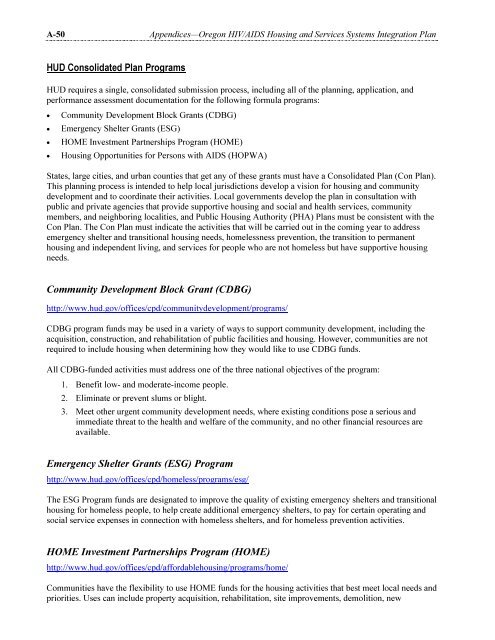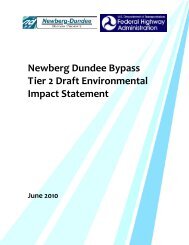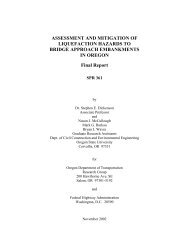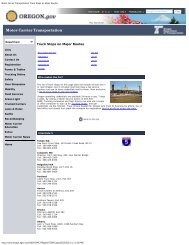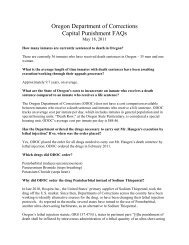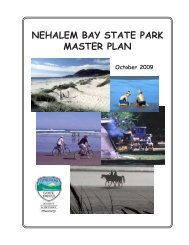Oregon Balance of State HIV/AIDS Housing & Services Systems ...
Oregon Balance of State HIV/AIDS Housing & Services Systems ...
Oregon Balance of State HIV/AIDS Housing & Services Systems ...
You also want an ePaper? Increase the reach of your titles
YUMPU automatically turns print PDFs into web optimized ePapers that Google loves.
A-50 Appendices—<strong>Oregon</strong> <strong>HIV</strong>/<strong>AIDS</strong> <strong>Housing</strong> and <strong>Services</strong> <strong>Systems</strong> Integration Plan<br />
HUD Consolidated Plan Programs<br />
HUD requires a single, consolidated submission process, including all <strong>of</strong> the planning, application, and<br />
performance assessment documentation for the following formula programs:<br />
• Community Development Block Grants (CDBG)<br />
• Emergency Shelter Grants (ESG)<br />
• HOME Investment Partnerships Program (HOME)<br />
• <strong>Housing</strong> Opportunities for Persons with <strong>AIDS</strong> (HOPWA)<br />
<strong>State</strong>s, large cities, and urban counties that get any <strong>of</strong> these grants must have a Consolidated Plan (Con Plan).<br />
This planning process is intended to help local jurisdictions develop a vision for housing and community<br />
development and to coordinate their activities. Local governments develop the plan in consultation with<br />
public and private agencies that provide supportive housing and social and health services, community<br />
members, and neighboring localities, and Public <strong>Housing</strong> Authority (PHA) Plans must be consistent with the<br />
Con Plan. The Con Plan must indicate the activities that will be carried out in the coming year to address<br />
emergency shelter and transitional housing needs, homelessness prevention, the transition to permanent<br />
housing and independent living, and services for people who are not homeless but have supportive housing<br />
needs.<br />
Community Development Block Grant (CDBG)<br />
http://www.hud.gov/<strong>of</strong>fices/cpd/communitydevelopment/programs/<br />
CDBG program funds may be used in a variety <strong>of</strong> ways to support community development, including the<br />
acquisition, construction, and rehabilitation <strong>of</strong> public facilities and housing. However, communities are not<br />
required to include housing when determining how they would like to use CDBG funds.<br />
All CDBG-funded activities must address one <strong>of</strong> the three national objectives <strong>of</strong> the program:<br />
1. Benefit low- and moderate-income people.<br />
2. Eliminate or prevent slums or blight.<br />
3. Meet other urgent community development needs, where existing conditions pose a serious and<br />
immediate threat to the health and welfare <strong>of</strong> the community, and no other financial resources are<br />
available.<br />
Emergency Shelter Grants (ESG) Program<br />
http://www.hud.gov/<strong>of</strong>fices/cpd/homeless/programs/esg/<br />
The ESG Program funds are designated to improve the quality <strong>of</strong> existing emergency shelters and transitional<br />
housing for homeless people, to help create additional emergency shelters, to pay for certain operating and<br />
social service expenses in connection with homeless shelters, and for homeless prevention activities.<br />
HOME Investment Partnerships Program (HOME)<br />
http://www.hud.gov/<strong>of</strong>fices/cpd/affordablehousing/programs/home/<br />
Communities have the flexibility to use HOME funds for the housing activities that best meet local needs and<br />
priorities. Uses can include property acquisition, rehabilitation, site improvements, demolition, new


